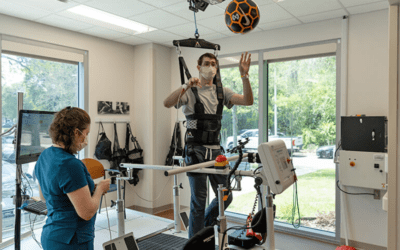Neurological conditions, also known as neurological disorders or diseases, affect the nervous system, which includes the brain, spinal cord, and nerves throughout the body. These conditions range from relatively common and benign disorders to rare and severe diseases.
Symptoms of Neurological Diseases:
Neurological diseases encompass a wide range of conditions affecting the nervous system, which includes the brain, spinal cord, and nerves.
Symptoms can vary widely depending on the specific disease and the area of the nervous system affected. Here are some common symptoms associated with neurological diseases…

- Headaches
- Seizures.
- Muscle Weakness or Paralysis
- Numbness or Tingling
- Changes in Vision
- Balance and Coordination Problems
- Speech and Language Difficulties
- Memory Loss and Cognitive Decline
- Changes in Mood or Behaviour
- Tremors or Shaking
- Loss of Consciousness or Altered Consciousness
- Difficulty Swallowing or Speaking
Prevention of Neurological Disease:
Preventing neurological diseases involves a combination of lifestyle choices, medical interventions, and public health initiatives. While not all neurological conditions are entirely preventable, adopting certain strategies can reduce the risk of developing these diseases and promote overall brain health.
Professional Guidance in ‘Preventing Neurological Diseases
Healthy Diet:
Consuming a balanced diet of fruits, vegetables, whole grains, lean proteins, and healthy fats can support brain health. Foods high in antioxidants, omega-3 fatty acids, and vitamins B, C, and E are particularly beneficial. Limiting processed foods, sugar, and saturated fats can also help reduce the risk of neurological disorders.
Regular Exercise:

Staying physically active is crucial for maintaining brain health and reducing the risk of neurological diseases. Regular exercise improves blood flow to the brain, promotes the growth of new neurons, and reduces inflammation. Aim for at least 150 minutes of moderate-intensity exercise per week and strength training exercises.
Adequate Sleep:
Quality sleep is essential for cognitive function and overall brain health. Chronic sleep deprivation has been linked to an increased risk of neurological conditions such as Alzheimer’s disease and Parkinson’s disease. Aim for 7-9 hours of sleep per night and practise good sleep hygiene habits.
Stress Management:
Chronic stress can harm the brain and increase the risk of neurological diseases. Engage in stress-reducing activities such as mindfulness meditation, yoga, deep breathing exercises, or hobbies that promote relaxation. Brain Stimulation: Keeping the brain active and engaged can help maintain cognitive function and reduce the risk of age-related cognitive decline. Stay mentally stimulated by challenging yourself with puzzles, games, reading, learning new skills, or engaging in intellectually stimulating activities.
Social Engagement:
Maintaining social connections and participating in social activities can support brain health and reduce the risk of neurological diseases. Social interaction stimulates the brain, promotes emotional well-being, and may help protect against cognitive decline.
Manage Chronic Conditions:
Certain chronic conditions such as diabetes, hypertension, and obesity are risk factors for neurological diseases. Manage these conditions through lifestyle modifications, medication adherence, and regular medical care to reduce their impact on brain health. Avoid Substance Abuse: Substance abuse, including excessive alcohol consumption and illicit drug use, can have detrimental effects on the brain and increase the risk of neurological disorders. Limit alcohol intake and avoid recreational drug use to protect brain health.
Regular Health Cheque-ups:

Regular medical Cheque-ups allow for early detection and management of health conditions that may impact neurological health. Monitor blood pressure, cholesterol levels, and other relevant health markers, and seek medical attention if any concerns arise.
Brain Injury Prevention:
Take precautions to prevent traumatic brain injuries, such as wearing seat belts, using helmets during sports activities, and preventing falls, especially in older adults.
Stay Informed:
Stay informed about the latest research and recommendations for brain health and neurological disease prevention. Consult healthcare professionals for personalized advice and guidance tailored to your risk factors and health needs. By adopting these essential steps for preventing neurological diseases, individuals can take proactive measures to support brain health, reduce risk factors, and promote overall well-being.
Positive Outcome:
While it’s not always possible to prevent neurological diseases entirely, adopting a healthy lifestyle and minimising risk factors can significantly reduce the likelihood of developing these conditions and promote overall brain health and well-being.



